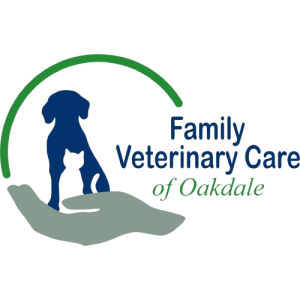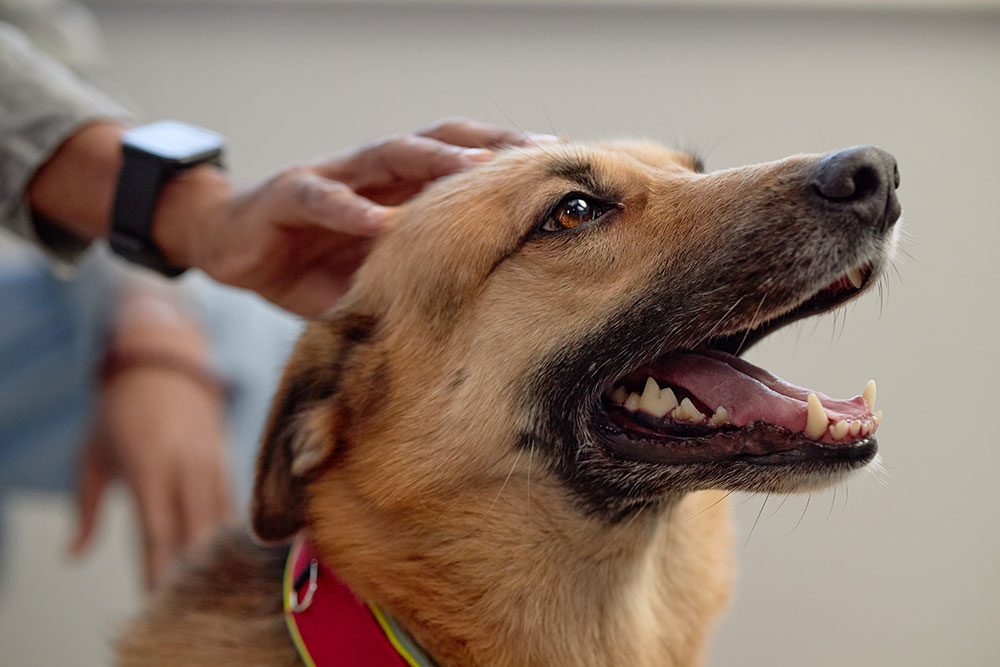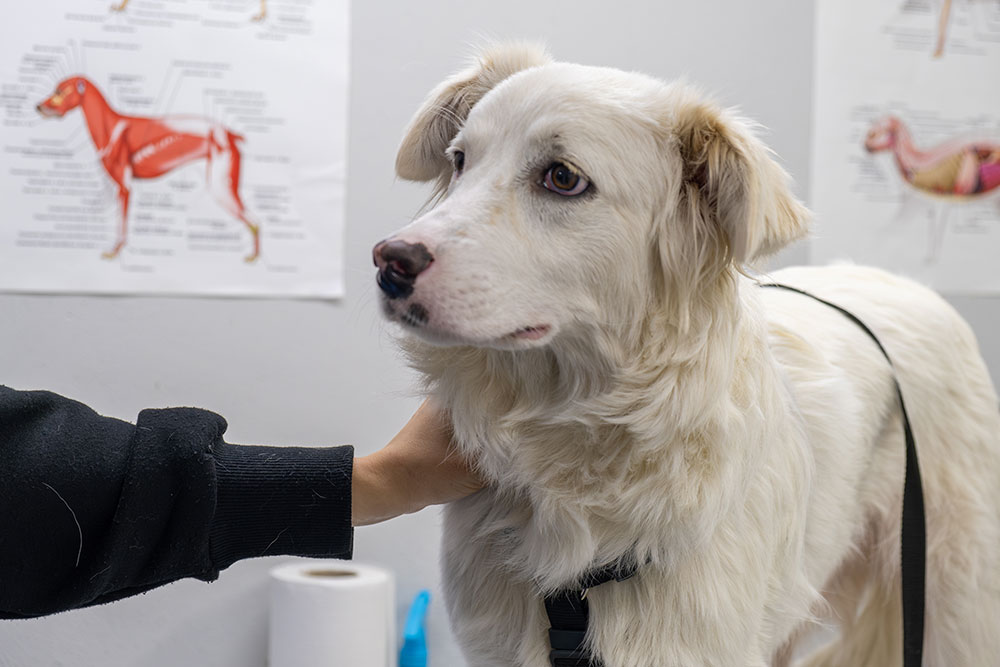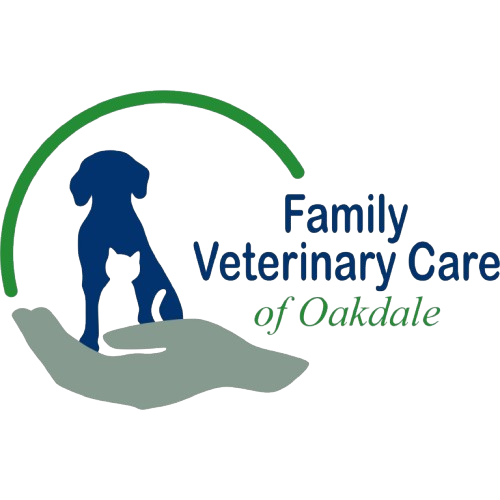What Your Pet’s Breed Says About Their Health
Every pet is unique—but their breed can tell us a lot about their potential health risks. At Family Veterinary Care of Oakdale, we believe that understanding your pet’s genetic predispositions is one of the best ways to stay proactive, prevent disease, and ensure a long, happy life.
Whether you’re parenting a purebred Persian or a lovable Lab mix, knowing what to watch for can make all the difference in early detection and treatment.
Learn more about breed-specific health risks.
Why Breed Matters in Pet Health
Certain breeds are more prone to specific conditions due to decades (or centuries) of selective breeding. Body structure, genetics, and inherited traits all contribute to increased risk for issues like arthritis, heart disease, and even cancer.
For example:
- Flat-faced breeds like Bulldogs are more likely to struggle with breathing.
- Large breeds like Great Danes face orthopedic and digestive concerns.
- Toy breeds can have dental issues due to overcrowded teeth.
Still unsure if something seems “off” with your pet? Try a home exam for a sick dog to guide what to look for.
Common Health Issues in Specific Dog Breeds
Brachycephalic Breeds (Bulldogs, Pugs, Shih Tzus)
- Risk: Brachycephalic Obstructive Airway Syndrome (BOAS)
- Signs: Snorting, snoring, labored breathing, overheating
- Prevention: Weight control, avoid heat, surgery in severe cases
Learn more about BOAS
Large & Giant Breeds (Great Danes, Rottweilers, Dobermans)
- Risk 1: Wobbler Syndrome – spinal cord compression: Wobbler Syndrome Info
- Risk 2: Gastric Dilatation-Volvulus (GDV) – life-threatening bloat: About GDV
- Signs: Wobbly walk, neck pain, distended abdomen, unproductive vomiting
- Prevention: Routine vet checkups, gastropexy surgery for GDV-prone dogs
Long-Backed Breeds (Dachshunds, Corgis, Basset Hounds)
- Risk: Intervertebral Disc Disease (IVDD)
- Signs: Sudden pain, limping, reluctance to jump, dragging hind legs
- Treatment: Crate rest, pain management, surgery in severe cases
All about IVDD
German Shepherds, Boxers, Golden Retrievers
- Risk 1: Degenerative Myelopathy – progressive paralysis
Learn about DM
- Risk 2: Hemangiosarcoma – aggressive internal cancer
About Hemangiosarcoma
Common Health Issues in Specific Cat Breeds
Persians, Himalayans, Exotic Shorthairs
- Risk: Brachycephalic airway syndrome
- Signs: Noisy breathing, excessive tear staining, respiratory distress
- Prevention: Avoid hot/stressful environments, surgical correction when needed
Maine Coons, Ragdolls
- Risk: Hypertrophic Cardiomyopathy (HCM)
- Signs: Lethargy, rapid breathing, fainting
- Management: Routine cardiac screenings and medication
Persians
- Risk: Polycystic Kidney Disease (PKD)
- Signs: Increased thirst, weight loss, vomiting
- Learn more about PKD
Additional Inherited Conditions by Breed
- Toy Breeds: Retained baby teeth, dental disease
Toy Breed Teeth Issues - Collies, Shelties: Hereditary eye diseases (like PRA or CEA)
Eye Disease in Dogs - Cavaliers, Schnauzers, Boxers: Heart disease (mitral valve, arrhythmias)
Heart Disease Diagnosis
Mitral Valve Disease Info - Many herding breeds: MDR1 gene mutation (drug sensitivity)
MDR1 Mutation Details
Want to dive deeper into the benefits of DNA testing?
Learn how genetic screening can help
How to Keep Your Pet Healthy
Preventive Veterinary Care
- Annual (or semi-annual) wellness exams
- Routine bloodwork and diagnostic screenings
- Vaccinations and parasite prevention
- Baseline cardiac or orthopedic evaluations for high-risk breeds
At-Home Health Monitoring
- Maintain a healthy weight to reduce stress on joints and organs
- Feed breed-appropriate, high-quality food
- Brush your pet’s teeth and schedule regular dental cleanings
- Keep a health journal—note any subtle behavior or mobility changes
Partnering with Your Veterinarian
At Family Veterinary Care of Oakdale, we’re passionate about proactive, personalized care. If your pet’s breed is linked to a known health risk, we’ll work with you to:
- Schedule early screenings
- Monitor for symptoms
- Create a wellness plan tailored to your pet’s needs
Don’t wait for symptoms to appear. Proactive care starts with knowledge and partnership.
Your pet’s breed offers more than personality and looks—it’s also a powerful clue to their health. Understanding the risks specific to your pet’s breed means you can act sooner, treat faster, and prevent more. With regular check-ups, genetic awareness, and informed care, you’ll be giving your furry family member the healthiest life possible.
If you’d like help building a customized care plan based on your pet’s breed, we’d love to meet them. Schedule an appointment











Leave A Comment